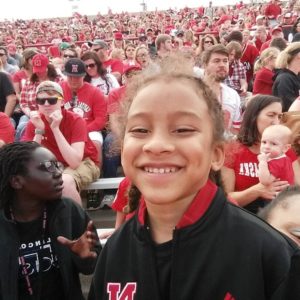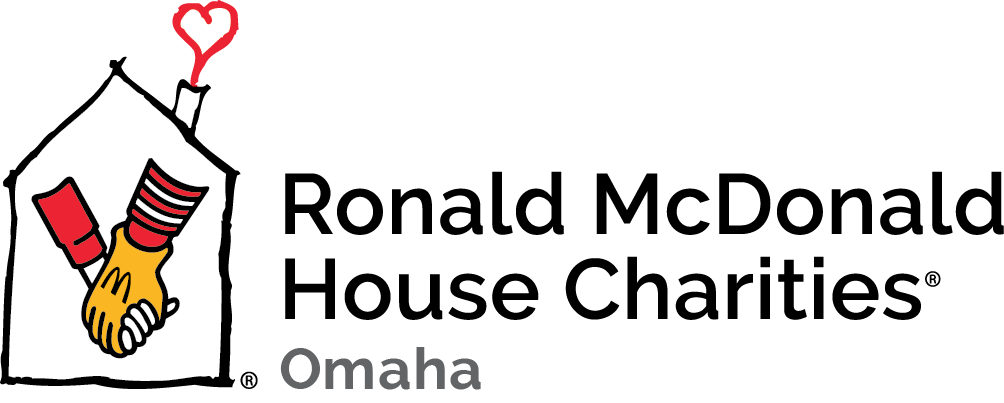Seeking Normalcy – and Hope
As the parents of five children, Rolanda and Patrick have grown used to doing whatever is necessary to provide for their family. One could say they, like our organization, take extraordinary measures to create ordinary times. They’ve traveled from Scottsbluff, Nebraska to Denver, Colorado to Lincoln, Nebraska and to Omaha, all so their youngest, seven-year-old Michael, could receive the medical care he needs, so his health issues can one day be more manageable. So his future experiences won’t be defined by what he can’t do. So he can enjoy a normal life.
When Rolanda was just 12 weeks pregnant with her fifth child, she went in for an appointment where doctors learned that she had already begun dilating, so she was instructed to stay on bedrest for the duration of the pregnancy. Now, Rolanda had already experienced one complicated pregnancy, as she delivered twin boys at 29 weeks who required some time in the NICU before heading home. Another pregnancy like that didn’t frighten her. Being on bedrest wasn’t the ideal scenario, but Rolanda was confident she could handle it.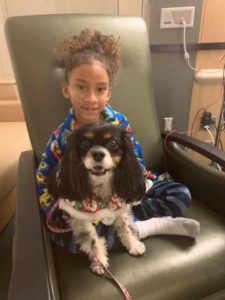
However, several weeks later, her condition worsened. On Valentine’s Day, she was sent to Denver, as the hospital in Scottsbluff was not as equipped to deal with the extensive care she and the baby needed. Doctors learned the baby was not receiving enough oxygen in the womb, which eventually led to Michael being born in early April, roughly nine weeks premature. Despite that, he weighed around five pounds, which gave an indication that things were moving in the right direction. He still required another few weeks in the NICU, during which his family stayed in the nearby Ronald McDonald House, giving them a comfortable and supportive place to lay their heads each night.
While there, Rolanda heard many stories from other families about the difficult situations they faced, which offered some perspective on – and hope for – the one in which she found herself.
By early May, Michael was healthy enough to go home, though he still required oxygen as well as a nasogastric tube, or NG-tube. The oxygen definitely gave Rolanda cause for concern, but overall she was still excited to bring her baby home. Two days later, Rolanda finished feeding him when her mother-in-law noticed something out of the ordinary.
Michael’s feet were turning blue.
Rolanda looked at his face.
He wasn’t breathing.
Panic set in.
An ambulance arrived to bring Michael to Denver, where further testing revealed he was aspirating fluid into his lungs. Doctors were able to stabilize him, but he had to be placed on a ventilator for a week. Even after coming off of the ventilator, he was on oxygen until he was eight months old.
When Michael was coming off the oxygen, Rolanda learned his doctor in Denver would be moving to a different hospital, another three hours away, in addition to the three hours from home he already was. Thankfully, the family had options. Rolanda was originally from Lincoln, and Michael’s care team referred them to a pair of therapy programs there. The family decided to move a few hours east so they could be closer to the care Michael needed.
For the next few years, Michael continued those therapies, but he wasn’t making the kind of progress his parents hoped. Ultimately, they were referred to more doctors, this time in Omaha.
At five years old, Michael entered the feeding therapy program at UNMC’s Munroe-Meyer Institute – an intense 45-day program to hopefully improve his ability to eat and drink like other children his age. Because of the nature of the program (several hours a day, five days a week), Rolanda and Michael could not afford to drive back and forth between Lincoln and Omaha over and over and over again. They needed a place to stay.
Ronald McDonald House Charities in Omaha was that place.
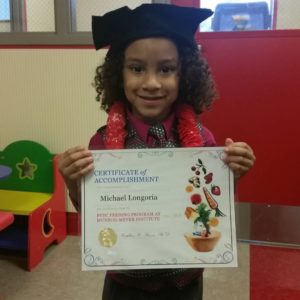 Rolanda was incredibly thankful to have a comfortable room and meals to return to after those long days, but she gained even more by being around other parents in situations like hers. When asked if any parents helped her and Michael throughout that program, Rolanda was quick to name half a dozen different people who assisted in some way, whether that was leading their own children through the program’s “homework,” encouraging Michael to eat or drink, or simply being a shoulder to lean on when the stress became too much.
Rolanda was incredibly thankful to have a comfortable room and meals to return to after those long days, but she gained even more by being around other parents in situations like hers. When asked if any parents helped her and Michael throughout that program, Rolanda was quick to name half a dozen different people who assisted in some way, whether that was leading their own children through the program’s “homework,” encouraging Michael to eat or drink, or simply being a shoulder to lean on when the stress became too much.
“It was so nice to build relationships with other families and the staff, who supported me when I just needed a break.”
Watching her son go through the feeding therapy program was challenging emotionally, as Rolanda remembers wanting to throw in the towel on multiple occasions. But she knew it was what Michael needed, so she fought through those difficulties and supported him for the duration of the program, which ended up lasting nearly twice as long as expected.
In the end, there was some success. Prior to the program, Michael wasn’t drinking any formula by mouth, instead receiving all of it from his gastrostomy tube, or G-tube. By the end, he could drink four ounces of formula by mouth, all on his own. That may not seem like a lot to you, but for a child like Michael, it was huge.
Unfortunately, despite that accomplishment, Michael was not gaining any weight. So he and his mom both went home, encouraged yet frustrated. Rolanda also found it far more difficult to continue the strict feeding regimen outside of the inpatient environment. Trying to return to a normal life when this new normal felt so abnormal proved to be a very tall task.
Complicating matters still was the fact that Michael’s eating issues were not the only problem they faced. He had severe food allergies. He dealt with vomiting. Perhaps worst of all, he suffered from brittle bone disease, which led to constantly enduring broken bones from seemingly harmless falls.
Just over a year ago, Michael was walking in the hallway at school when he tripped. The fall broke his wrist.
This condition has limited his activity significantly. No running. No jumping. No sports. It’s all taken a toll on Michael, which once led to this exchange between him and his mother:
“Mom, why am I like this?”
“Because you’re a special boy.”
“I don’t want to be special anymore.”
For a parent to hear that, it’s heartbreaking.
Rolanda says that’s what makes being in the House so important. “It’s so comforting to know that I can have somebody there to talk to, to vent to. For a mom that goes through this with kids, in and out of the hospital, hearing somebody say that it’s going to be okay… It’s just the best.”
She adds that being surrounded by so many loving, supportive people is a huge relief for those times when she’s away from home for long periods of time. “You feel like you’re with your own family.”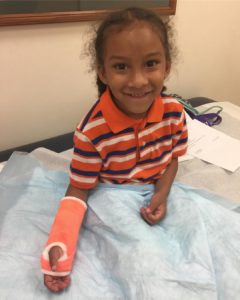
Now, though, Rolanda hopes things are moving on the right track. They recently learned that Michael’s body can’t break down proteins, amino acids, or fatty acids in the things he eats and drinks. This discovery has indicated to doctors that Michael likely has a type of genetic disorder, which should be diagnosed once testing is complete.
He also underwent a surgery in December at Boys Town National Research Hospital to remedy a tethered spinal cord, a condition where the spinal cord is attached to tissue around the spine, which can occasionally affect the digestive system. They don’t have all the answers – allergies, a compromised immune system, and the brittle bone disease are still a struggle – but the family is optimistic these developments will help put Michael and his health on a better path. A path towards normalcy.
During their last visit to Omaha, Michael’s surgery had a few complications that required the family to stay in Omaha a bit longer than expected. Those extra days meant they got to be a part of a Christmas brunch at the House, complete with a meal prepared by RMHC’s board of directors, presents from Adopt-a-Family donors, and of course, an appearance from Santa Claus.
Michael was ecstatic. He met Santa and opened presents, and while that may not seem that out of the ordinary, that’s exactly the point. He was able to have a normal childhood experience – one he too often hadn’t been able to enjoy – right here in the House.
And his mother could not have been more thrilled to see it.
The joy in Rolanda’s voice when discussing that morning was palpable. “He was so, so happy! To see him getting a chance to just be a boy was such a blessing. I love it.”
Your extraordinary support will help children like Michael experience even more ordinary times. Donate today.